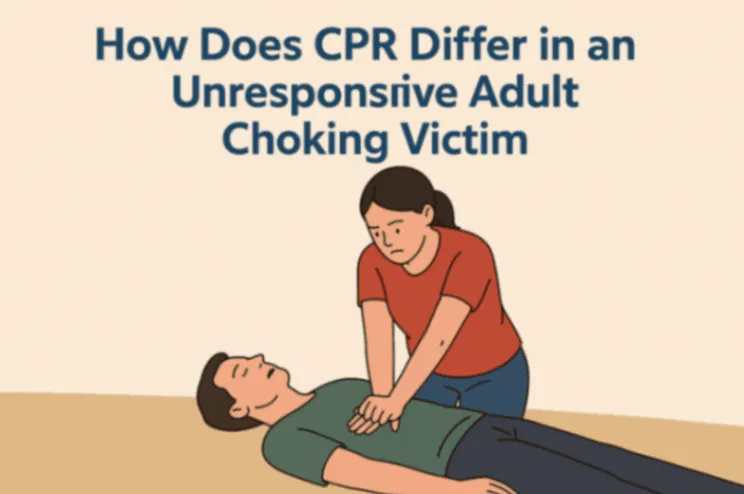|
Uncontrollable coughing at night often comes from allergies, asthma, reflux, or dry air. Identifying the trigger and applying targeted remedies can restore restful, uninterrupted sleep. |
Why does sleep vanish the minute a cough kicks in after lights out? The day felt fine, then bedtime turned into a throat battle. That pattern messes with rest, mood, and recovery. The good news: most night coughs trace back to fixable triggers.
We’ll sort the likely reasons, decode patterns, and map practical steps that actually work. And look, nobody wants vague tips. You’ll get clear actions, smart checks, and tools you can try tonight without overhauling your whole routine.
Why Does Uncontrollable Coughing at Night Happen?
Night cough feels different because posture, airflow, and nerve sensitivity change while resting. Mucus shifts. Acid creeps. Airways tighten. Triggers stack up, and the body goes on defense. That’s why uncontrollable coughing at night can spike even when days are quiet.
Honestly, the trick is to match symptoms to causes, then fix the simple stuff first. Keep track of timing, sputum, and positions that help or hurt. That short log often points to the right lane.
1) Postnasal Drip and Allergies
When you lie down, gravity stops helping. Mucus pools and slides, which irritates the throat and sparks a reflex cough. Common indoor culprits include dust mites, pet dander, and hidden pollen tracked in from the day. If sneezing, itchy eyes, or morning throat clearing show up, you’re probably dealing with coughing at night causes linked to rhinitis. Swap pillowcases often, rinse sinuses with saline, and keep bedroom filters clean. That one-two punch lowers drip volume and steadies the reflex.
2) Asthma and Respiratory Conditions
Airways narrow more at night in sensitive lungs. Cooler bedroom air, bedding allergens, and even laughter before bed can trip a twitchy bronchial tree. Asthma symptoms, particularly coughing, often worsen at night or in the early morning in those with the condition. What’s more, up to 75% of people with asthma (about 20 million Americans) report that their symptoms are more severe at night. If wheeze, chest tightness, or exercise cough ride along with persistent cough at night, talk to your clinician about nocturnal control and inhaler timing.
3) Acid Reflux (GERD)
Reflux is a stealthy driver of coughing worse at night. Lying flat lets acid creep up and irritate the larynx, which flips the cough switch. You may not feel heartburn; a scratchy throat or bitter taste can be the only hint. Elevate the head, finish dinner earlier, and avoid late-night chocolate, citrus, and fried food. If the pattern keeps returning, ask about acid reducers and check for laryngopharyngeal reflux.
4) Environmental Factors
Dry rooms, stale air, and moldy corners poke at airways. Winter heat dehydrates the nose and throat, so even a dry cough at night can roar. Add a cool-mist humidifier, clean vents, and check window sills for spots. If your building traps humidity, use a dehumidifier instead. Good airflow matters more than scented sprays.
5) Other Health Conditions
Less common, but important: sleep apnea can present with a choking cough and gasps. Fluid shifts from leg swelling can also irritate the lungs while supine. If there’s swelling, breathlessness with minimal effort, or chest discomfort with severe coughing at night, seek medical care. Do not wait for that one out.
How to Stop Uncontrollable Coughing at Night
You don’t need twenty hacks. You need the right few. Start with positioning, moisture control, and trigger removals. Then fine-tune based on your pattern. This is how to stop coughing at night without guesswork. And yes, we’ll keep it simple and steady so you can test changes and see what sticks.
1. Home Remedies and Lifestyle Changes
Raise the head of your bed by 4–6 inches to cut reflux and pooling. Keep a steady sleep schedule; inconsistency agitates airway tone. Rinse with warm saline before bed to clear secretions. Switch to fragrance-free laundry detergent for bedding. For night cough home remedies, choose small, proven moves over flashy stuff.
-
Run a cool-mist humidifier and clean it weekly
-
Shower before bed to remove pollen and dander
-
Use a HEPA purifier near the bed
2. Dietary Adjustments for GERD-Related Cough
Evening meals set the tone. Finish dinner two to three hours before bed. Keep portions modest. Favor lean protein, steamed vegetables, and complex carbs. Skip late-night snacks. If creatine causes belly fat to pop into your feed recently, ignore the noise and focus on reflux hygiene here. To dial back reflux-driven coughing fits at night, avoid:
-
Spicy, fatty, and acidic foods at night
-
Chocolate, peppermint, and carbonated drinks
-
Alcohol right before bed
3. Medications and Medical Treatments
Match meds to causes. For allergies, second-generation antihistamines or intranasal steroids help. For asthma, controller inhalers plus a rescue inhaler plan curb constant coughing at night. For reflux, H2 blockers or proton-pump inhibitors can quiet triggers. If infection is suspected, your clinician will prescribe antibiotics or antivirals when appropriate. When night cough treatment stalls, ask about spirometry, peak flow tracking, or a reflux workup.
-
Antihistamines or nasal steroids for postnasal drip
-
Inhaled corticosteroids or combination inhalers for asthma
-
Acid reducers for GERD patterns
4. Breathing Exercises for Relief
Simple drills calm the reflex. Try box breathing (inhale 4, hold 4, exhale 4, hold 4) for a minute. Then switch to pursed-lip breathing to slow exhale and reduce airway collapse. Humming on a light “mm” adds gentle back pressure and helps with nocturnal cough, causing laryngeal irritation. Practice twice daily so the technique is ready when a spike hits. For nighttime cough remedies, consistency beats intensity.
When to See a Doctor for Uncontrollable Coughing at Night
Red flags need action: fever over 101.6°F, chest pain, shortness of breath at rest, pink or bloody sputum, or ankle swelling. If uncontrollable coughing at night lasts more than three weeks, get evaluated. If you feel breathless lying flat, wake gasping, or notice weight loss, book a visit sooner. Clarify meds you’ve tried, doses, and exact timing of symptoms. That detail speeds answers.
Preventing Uncontrollable Coughing at Night in the Future
Keep the bedroom clean, cool, and balanced for humidity. Refresh filters, wash bedding weekly, and limit pets on pillows. Build a steady wind-down: light stretch, nasal rinse, small sip of warm water, then lights out. Track patterns in a simple note app. Over time, prevention beats any emergency fix, and uncontrollable coughing at night becomes a rare guest.
Common Triggers vs. Targeted Fixes
|
Trigger Pattern |
Likely Driver |
Fast Fix Tonight |
Next-Step Plan |
|
Worse lying flat, bitter taste |
Reflux |
Elevate head, early dinner |
Ask about acid reducers |
|
Itchy eyes, morning mucus |
Allergies |
Saline rinse, purifier |
Consider nasal steroid |
|
Wheeze, chest tightness |
Asthma |
Rescue inhaler as directed |
Controller inhaler check |
|
Dry, scratchy cough |
Dry air |
Cool-mist humidifier |
Vent cleaning schedule |
|
Productive cough on waking |
Postnasal drip |
Warm shower, fluids |
Allergy testing option |
Extra Tips That Actually Help
Maybe you’ve seen every gadget ad. Skip most of them. Good habit loops win. Keep a small thermos of warm water by the bed. Avoid throat lozenges with heavy menthol right before sleep if they irritate. And if coughing at night seems to rotate, rotate fixes in a planned order for three nights each. That way, you’ll see what truly works and what’s noise.
Conclusion
Night cough isn’t random. Match symptoms to causes, stack a few precise habits, and bring in targeted therapy when needed. With steady tweaks, uncontrollable coughing at night eases, sleep returns, and mornings stop feeling like recovery mode. Small moves, real progress.
أسئلة متكررة
What resets a stubborn night cough fast?
Change position, sip warm water, try pursed-lip breathing, and use saline. If you know your trigger, apply the matching fix right away and track the response.
Why do cough spikes hit after midnight?
Airways narrow during sleep, mucus shifts with gravity, and indoor air dries out. Those changes combine and trigger a reflex cough, especially in sensitive throats.
Can pillows or bedding make coughing worse?
Yes. Dust mites and dander collect in fabric. Use allergen-proof covers, wash hot weekly, and keep pets off pillows to reduce coughing fits at night.
How long should a night cough last before help?
If symptoms persist beyond three weeks, or if you notice high fever, chest pain, or bloody sputum, book a medical visit and bring your symptom log.
Do breathing drills really help at night?
Yes. Box breathing and pursed-lip breathing lower airway reactivity. Practice twice daily so the reflex calms faster when a persistent cough at night flares.
-User-1754380331.png)
كُتب بواسطة







